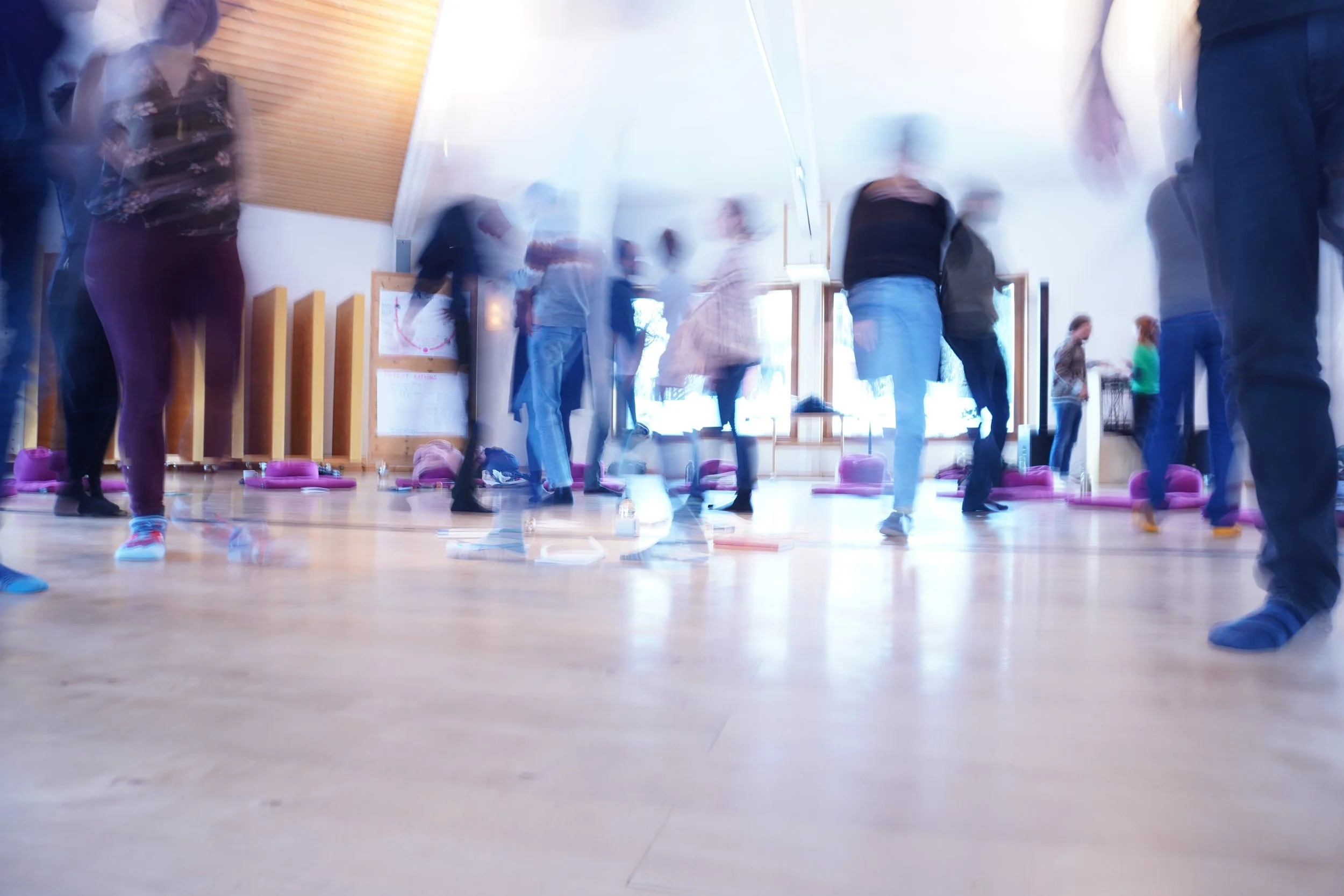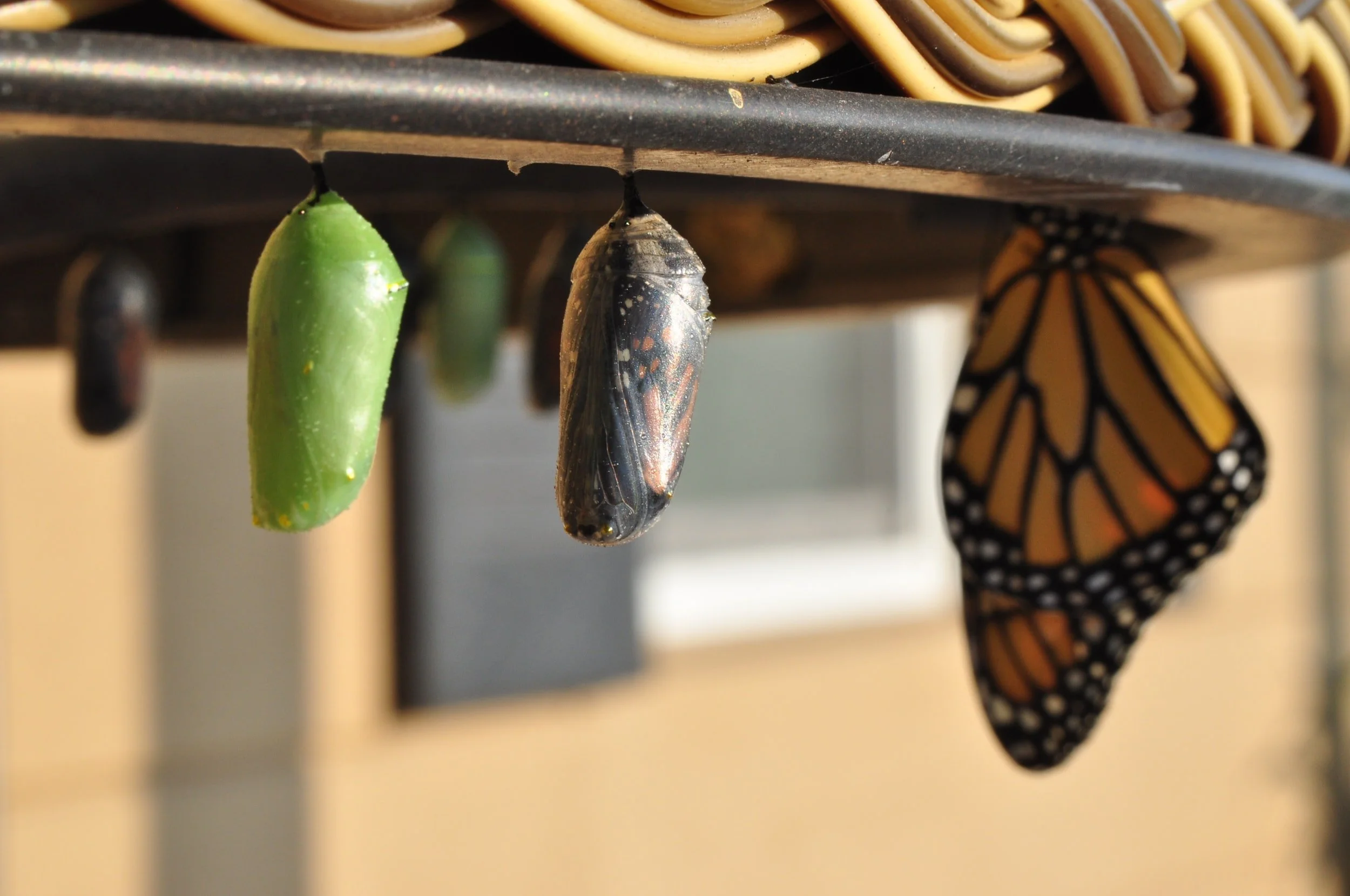
Our blog
Human (sociometric) mapping: A powerful tool for group facilitation
Human - or sociometric - mapping is a technique in group processes that invites participants to physically position themselves on imaginary spectrums, circles or clusters in relation to certain statements and questions. Read on to find out why we at collaboratio helvetica are using it so often, and how it can backfire.
Building Bridges, Not Walls: Trauma-Informed Collaboration for Flourishing Workplaces
We often picture collaboration as a harmonious exchange of ideas, a well-oiled machine churning out success. But beneath the surface, unseen forces can disrupt this dynamic. Trauma, whether a past event or chronic stress, can leave its mark on our nervous system, impacting how we interact with colleagues. In this blog post, Matthias Ryffel discusses how trauma can impact collaboration at the workplace and how a trauma-informed approach can foster healing processes for a better work environment.
Beyond the Mind: Expanding Our Understanding of Knowing
In Western society, intelligence is often equated with intellectual prowess – the ability to reason, analyse, and problem-solve. This logical, linear approach to knowing, championed by Descartes' famous dictum "cogito, ergo sum" (I think, therefore I am), has driven immense scientific advancement. However, over-reliance on this kind of knowledge may leave us disconnected from ourselves and the world around us.
The 5 Faces of Intuition: Reclaiming Inner Wisdom for Personal and Planetary Healing
In this blog post, Catalyst and facilitator Alexandra Choutko explores the importance of cultivating intuition to face the challenges of our time.
How to Conduct Effective Peer Reviews in a Team
Peer reviews are an essential component for continuous improvement and accountability within any team. In a team working with Sociocracy 3.0 (S3.0), peer reviews can be particularly powerful as they align with the principles of collaboration, consent-based decision-making, and decentralised governance.
This’s a guide on how to conduct effective peer reviews in a team using Sociocracy 3.0.
Lessons learned after seven years at collaboratio helvetica
Daphne Bucher looks back at seven successful years at collaboratio helvetica. In this blog post, she talks about her learnings regarding power dynamics, self-responsibility, and personal growth in a self-organised start-up environment.
Who Cards
Ever had those moments at gatherings where you left feeling like you didn't really learn anything about how people are doing? Or spent countless hours with family, yet still feel like they don't truly know you? In some social circles, it's always the same voices dominating the conversation, making it exhausting. 😓 And meeting new people? Breaking through the ice can be tough.
Team Growth Journey: Exploring Conscious Leadership
Collaboratio helvetica is self-organised and operates along the collaboration principles of Sociocracy 3.0. The collective decision was taken to embark on a learning journey and to explore the Conscious Leadership approach by the Conscious Leadership Group.
Learning from the Titanic: understanding different levels of intervention with the iceberg model
The iceberg model reveals deeper aspects of social and environmental challenges. Take plastic pollution in oceans: cleaning is crucial, but without addressing the root causes, we're stuck in a cycle. We must question the structures, laws, and mindsets that perpetuate this issue. Read our insightful blog post on understanding and addressing the iceberg model. Let's avoid repeating history and move beyond surface-level fixes to create lasting change.
Exploring Social Innovation: An Introduction by Nora Wilhelm
The term social innovation has become a buzzword, but it’s important to keep in mind that there is no one single definition that everyone using it agrees upon. Put simply, social innovation is about addressing the challenges humanity is facing, such as climate change, biodiversity loss, poverty, and gender equity - just four of the many challenges contained in the Sustainable Development Goals (SDGs). Social innovators are the people deploying different types of strategies to address these challenges.
Funding Cycle Tool
Funders typically go through a cyclical process when fulfilling their purpose. They strategise and make key decisions about what should be funded and how, to what end. Then, those who choose to be transparent communicate about this strategy and the process that enables it, for example with a call for applications or a page on their website explaining their funding approach and who is eligible…
Learning Ecology - an evolving practice
Organisational learning is important for all contexts, yet more important still for innovative, action research-based, prototype driven initiatives. Dedicated to catalysing social change in Switzerland, collaboratio helvetica designs and runs prototypes and experiments in order to find ways to achieve this goal, and often the learnings from these are the most valuable outcome of the projects.
Theory of Change framework
The Theory of Change framework is designed to aid social innovation projects to hypothesise about the outcome and impact of their work, in order to be able to respond to rapidly changing contexts and emergent insights while remaining accountable to stakeholders and funders.
Fundraising resources & templates
Here, you will find templates of a dossier, timeline, budget and financing plan. Have fun experimenting with it!
How to have difficult conversations
Difficult conversations are an essential part of meaningful collaborations. A big part of changing the ways we work together implies changing the way how crucial conversations within an organisation take place. Many of the social tools we use at collaboratio helvetica, including dialogue, 4-levels of listening and liberating structures, among many many others offer different methods to have deep conversations that allow everyone to be heard, and any topic to be discussed. But are these conversations also successful in terms of outcome? Do we achieve what we gather for in the first place?
The 5R framework - Taking a systems view
More and more people agree that we need to work towards systemic change. But how can we define it, and where to begin? Systemic change can be understood as a change in how a system operates from the inside out. Besides deep shifts in the underlying paradigm(s), this includes changes in the Rules, Roles, Relationships and Resources that govern a given system (USAID, 2016).
The How of Systemic Change
I like to start with a story that impressed me when hearing it the first time, and I am still inspired when re-watching the video footage. It gave me a metaphor and scientific “evidence” for how subtleties can have huge and unpredictable ripple effects:
A Brief Introduction to Systems Thinking
Systemic thinking is “like a language for describing and understanding, the forces and interrelationships that shape the behaviour of systems” (see more here: Fifth Discipline Fieldbook). With this approach it is possible to get away from the - often only short-term effective - treatment of symptoms and to concentrate on the deeper causes, which are mostly inherent to a system (see also the chapter on Root Causes and the Iceberg Model).
Collaboration - a first taster
What we usually say is that Radical Collaboration is both a toolset and a mindset. We can practice being together, in relationships with one another and the collective both on a practical level as well as on a more energetic and emotional level. To practice collaboration takes a lifetime to master. In this lifelong practice, we see the Catalyst Lab as a boot camp. In order to bring upon systemic change in the world, improving and deepening your relationships is a key skill and is, unfortunately, often underestimated and practised insufficiently.
Prototyping mindset
Prototyping refers to building or creating a small but essential part of a larger project in order to see if it works as envisioned. It is rooted in ‘doing’ - development, testing, evaluating, reiterating. In the original framework of Theory U, it is the definitive step into concrete action, while staying closely connected to the deep mindset shift that happened in the previous steps of the Catalyst Lab journey and to the source of our intention.
Follow our journey
Browse our blog by hashtags:
- #3Dmapping
- #4levelsoflistening
- #5R
- #agenda2030
- #alexandra
- #artofhosting
- #brenébrown
- #Bürger:innenrat
- #caseclinic
- #catalyst
- #catalystlab
- #catalystlab1
- #catalystlab2
- #catalystlab4
- #change
- #CitizensAssembly
- #co-creation
- #collaboration
- #community
- #connection
- #courage
- #covid19
- #creativity
- #dance
- #decisionmaking
- #dialogue
- #education
- #empowerment
- #exercise
- #experience
- #facilitation
- #feedback
- #food
- #funding
- #FundingSystemsChange
- #fundraising
- #future
- #genderequality
- #genderequity
- #genderlab
- #german
- #guidance
- #guidebook
- #HR
- #iceberg
- #icebreaker
- #impactloop
- #inclusion
- #interview
- #learning
- #listening
- #media
- #method
- #mindset
- #openmind
- #openwill
- #organisationallearnings
- #personaldevelopment
- #politics
- #PresencingInstitute
- #ProteinLab
- #prototyping
- #racism
- #radicalcollaboration
- #reflection
- #SDG
- #SDG10
- #SDG11
- #SDG12
- #SDG13
- #SDG16
- #SDG17
- #SDG4
- #SDG5
- #SDG8
- #SDG9
- #SDSN
- #self-reflection
- #services
- #socialinnovation
- #SocialInnovationLab
- #sociocracy3.0
- #stakeholder
- #storytelling
- #strategy
- #stuck
- #sustainability
- #system
- #systemschange
- #systemsmapping
- #team
- #theoryU
- #transformation
- #university
- #vulnerability
- #work
- #workplace
- #workshop
- #youth4switzerland
- Liechtenstein






































